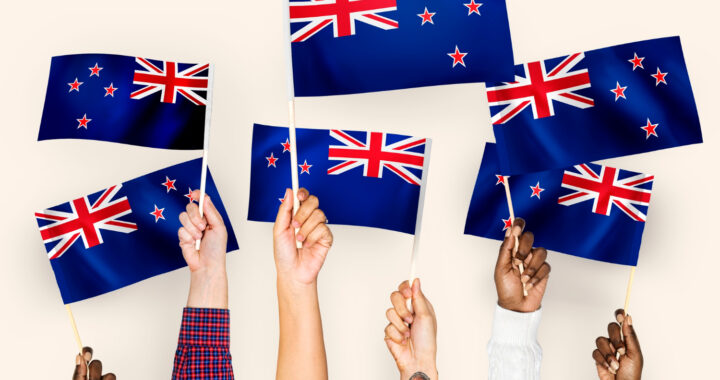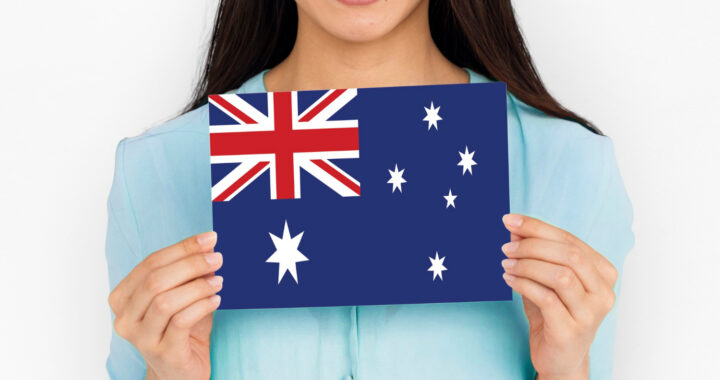How do I get Scholarships and Funding Opportunities for Erasmus Mundus? What is Erasmus Mundus Scholarship? The scholarships and funding opportunities for Erasmus Mundus are awarded to those students who attend the Erasmus Joint Programs at doctoral or master’s level. Are you also looking to get in-depth knowledge about scholarships and funding opportunities for Erasmus Mundus? If yes, then you’re at the right place. This is the best guide to help you get all the details regarding Erasmus mundus scholarships and funding opportunities to help you on your study abroad adventures.
Overview of Scholarships and Funding Opportunities for Erasmus Mundus

Taking a journey to pursue a Master’s program abroad can be exciting and daunting, especially when financing your studies. For Indian students holding a Bachelor’s degree and eyeing a Master’s program abroad, the Erasmus Mundus Joint Masters programs offer a fantastic opportunity. These programs are renowned for their academic excellence, cultural immersion, and comprehensive scholarship offerings that significantly ease the financial burden for international students.
The scholarships and funding opportunities for Erasmus Mundus are designed to attract the brightest minds worldwide, providing substantial financial support to help cover tuition fees, travel costs, and living expenses. For many students, securing a scholarship is crucial to realising their dream of studying abroad. They get grants for Erasmus Mundus.
Importance of Scholarships and Financial Aid Options for International Erasmus Mundus Students
For many Indian students, the cost of international education can be a major barrier. Scholarships and funding opportunities like those offered by Erasmus Mundus play a vital role in bridging this gap. These scholarships alleviate the financial stress associated with studying abroad and provide a sense of security, allowing students to focus on their academic and personal growth. Moreover, receiving a prestigious scholarship can enhance a student’s resume, offering them a competitive edge in the global job market. It also opens doors to a diverse network of peers and professionals, fostering cross-cultural exchanges and long-lasting connections.
Erasmus Mundus Scholarship 2024

Eligibility Criteria
Erasmus Mundus scholarships are open to students worldwide, including Indian students aiming to pursue a Master’s degree in Europe. Applicants must:
- Hold a recognized undergraduate degree or an equivalent qualification when they apply.
- Meet the chosen EMJM program’s specific requirements, including academic qualifications, language proficiency, and relevant experience.
Specific Requirements for Applicants
Each EMJM program may have its requirements, so it’s crucial to carefully review the specific criteria for the program you are interested in. Common requirements include:
- Academic excellence: Strong academic record and relevant undergraduate degree.
- Language proficiency: Proof of proficiency in the language of instruction (usually English), which can be demonstrated through standardized tests like IELTS or TOEFL.
- Motivation letter: A well-crafted statement of purpose explaining your reasons for choosing the program and how it aligns with your career goals.
- Letters of recommendation: Usually from academic or professional referees who can attest to your qualifications and potential.
Restrictions and Limitations
While the scholarships and funding opportunities for Erasmus Mundus are generous, there are certain restrictions to be aware of:
- You can apply to three different EMJM programs in a given application round.
- Students who have already received an Erasmus Mundus scholarship for a previous Master’s program are not eligible to apply again.
- Some scholarships have regional restrictions, prioritizing students from certain countries or regions.
Disciplines Covered
Erasmus Mundus Joint Masters programs cover various disciplines, ensuring that students from various academic backgrounds can find a program that suits their interests and career aspirations. Some of the fields include:
- Engineering and Technology
- Environmental and Earth Sciences
- Business and Economics
- Social Sciences and Humanities
- Health and Life Sciences
Importance of Choosing the Right Discipline
Selecting the right discipline is crucial for maximizing the benefits of the Erasmus Mundus scholarship. Consider the following factors:
- Career Goals: Choose a program that aligns with your long-term career objectives.
- Academic Interests: Opt for a field that genuinely interests you and matches your academic strengths.
- Market Demand: Research the demand for professionals in your chosen field, both in your home country and internationally.
By carefully considering these aspects, you can ensure that your chosen program enriches your academic knowledge and enhances your professional prospects.
Documents Required
Applying for an Erasmus Mundus scholarship requires meticulous preparation of several key documents. These typically include:
- Completed Application Form: Ensure all sections are filled accurately.
- Academic Transcripts: Certified copies of your undergraduate degree and transcripts.
- Proof of Language Proficiency: Test scores such as IELTS or TOEFL.
- Curriculum Vitae (CV): A detailed CV highlighting your academic and professional achievements.
- Motivation Letter: A compelling statement explaining your interest in the program and career goals.
- Letters of Recommendation: Usually two, from academic or professional referees.
- Passport Copy: A copy of your valid passport.
- Portfolio: (If applicable) Required for fields such as art or design.
Tips for Preparing and Organizing Documents
- Start Early: Begin gathering and preparing documents well before the application deadline.
- Follow Guidelines: Adhere to the specific requirements and guidelines provided by the program.
- Proofread: Ensure all documents are free of errors and inconsistencies.
- Certification and Translation: Get your documents certified and translated if required.
- Digital Copies: Prepare scanned copies of all documents in the required formats (e.g., PDF).
Scholarship Inclusions
Coverage Details: Tuition Fees, Travel, Living Expenses
The Erasmus Mundus scholarship provides comprehensive financial support, which includes:
- Tuition Fees: Full coverage of tuition fees for the entire program duration.
- Travel Costs: Financial assistance for travel expenses between the student’s home and host countries. This typically includes two round-trip tickets.
- Living Expenses: A monthly subsistence allowance to cover living costs such as accommodation, food, and personal expenses. The amount may vary depending on the host country.
Differences in Scholarship Amounts for EU and Non-EU Students
The scholarship amounts may differ based on whether the student is from an EU or non-EU country. Generally, non-EU students receive a higher monthly allowance to account for the additional travel and relocation costs. Here’s a summary:
| Category | EU Students | Non-EU Students |
| Tuition Fees | Fully covered | Fully covered |
| Travel Costs | Limited support | Full support |
| Living Expenses | Lower allowance | Higher allowance |
This structured financial support ensures that students can focus on their studies without the burden of financial constraints.
Benefits of the Erasmus Mundus Scholarship

One of the most significant benefits of the scholarships and funding opportunities for Erasmus Mundus is the substantial financial support it provides. This scholarship covers a wide range of expenses, making it easier for students to manage the high costs of studying abroad. The key financial benefits include:
- Full Tuition Fee Coverage: Students do not need to worry about paying for their education.
- Monthly Subsistence Allowance: Helps cover living expenses, including rent, food, and other necessities.
- Travel Costs: Assistance with travel expenses ensures that students can comfortably travel to and from their host countries.
This comprehensive financial package allows students to focus entirely on their studies and personal development without financial stress.
Opportunities for Cultural Exchange and Networking
The Erasmus Mundus program is more than just an academic experience; it’s a cultural immersion. Students gain exposure to diverse cultures and lifestyles by studying in multiple European countries. Key benefits include:
- Cultural Exchange: Living and studying in different countries fosters a deep understanding of various cultures, enhancing personal growth and global awareness.
- Networking Opportunities: Students build a global network of peers, professors, and professionals, which can be invaluable for their future careers.
Enhancing Academic and Professional Prospects
Earning an Erasmus Mundus scholarship and completing an EMJM program significantly boosts a student’s academic and professional credentials. Key advantages include:
- High-Quality Education: Access to top-notch academic programs and institutions.
- Career Advancement: The prestige of the scholarship and the quality of education received can lead to better job prospects and career advancement opportunities.
- Research Opportunities: Many programs offer robust research components, allowing students to contribute to their fields of study.
How to Apply for the Erasmus Mundus Scholarship
Frustrated with Generic College Lists from AI Tools?
Get a tailored college shortlist crafted by study abroad experts who understand YOUR goals, profile, and aspirations.

Step-by-Step Guide to the Application Process
Applying for an Erasmus Mundus scholarship involves several critical steps:
- Research Programs: Identify EMJM programs that align with your academic interests and career goals.
- Check Eligibility: Ensure you meet the eligibility criteria for the chosen programs.
- Prepare Documents: Gather and prepare all required documents, including transcripts, proof of language proficiency, CV, motivation letter, and letters of recommendation.
- Complete Application: Fill out the online application forms for the chosen programs.
- Submit Applications: Submit your applications before the specified deadlines.
Important Dates and Deadlines
Timely submission is crucial for a successful application. Key dates typically include:
- Application Opens: Usually in the fall of the previous year (e.g., September 2023 for the 2024 intake).
- Application Deadline: Varies by program but generally falls between December and February.
- Notification of Results: Typically in April or May.
- Program Start Date: Most programs begin in the fall (September/October).
Tips for a Successful Application
- Start Early: Give yourself ample time to prepare your application materials.
- Be Thorough: Carefully follow all instructions and guidelines.
- Highlight Strengths: Clearly articulate your academic achievements, relevant experiences, and career goals in your motivation letter.
- Seek Feedback: Have mentors or peers review your application documents.
Selection Procedure

How Candidates Are Selected
The selection process for the Erasmus Mundus scholarship is rigorous and competitive. It involves multiple stages to ensure that only the most qualified candidates are chosen. The typical selection procedure includes:
- Initial Screening: All applications are reviewed to meet the basic eligibility criteria.
- Evaluation by Selection Committee: A committee of experts evaluates the applications based on various criteria, including academic excellence, relevance of the candidate’s background to the program, and the quality of the motivation letter.
- Interview (if applicable): Some programs may require shortlisted candidates to attend an interview as part of the selection process.
- Final Decision: The final list of selected candidates is drawn up, and successful applicants are notified.
Evaluation Criteria and Process
Candidates are evaluated on several critical criteria, varying slightly depending on the specific EMJM program. Common evaluation criteria include:
- Academic Record: Academic performance and achievements during undergraduate studies.
- Motivation Letter: Clarity, coherence, and relevance of the motivation letter, demonstrating the candidate’s reasons for applying and how the program aligns with their career goals.
- Language Proficiency: Proficiency in the language of instruction, typically English.
- Relevant Experience: Any relevant work or research experience that adds value to the application.
- Letters of Recommendation: Strength and relevance of the recommendations provided.
The selection process is transparent, and candidates are assessed fairly based on the outlined criteria.
Tips for Increasing Your Chances of Selection
- Tailor Your Application: Customize your motivation letter to reflect why you are a perfect fit for the specific program you are applying to.
- Highlight Relevant Experience: Emphasize any work, research, or volunteer experience relevant to the program.
- Showcase Academic Excellence: Present your academic achievements and any relevant coursework or projects.
- Prepare for the Interview: If an interview is part of the selection process, practice answering common questions and be prepared to discuss your application in detail.
Other Funding Opportunities
National Funding Programs
Many countries offer their Erasmus Mundus funding opportunities to support students studying abroad. These programs can be an excellent supplement to Erasmus Mundus scholarships. Here’s how to find and apply for these scholarships and funding opportunities for Erasmus Mundus:
- Research National Scholarships: Look for scholarships offered by the Indian government, such as the Ministry of Human Resource Development (MHRD) scholarships or other regional government grants.
- University-Specific Scholarships: Many universities also offer scholarships to international students. Check the official websites of your target universities for available funding options.
- Private Organizations: Numerous private foundations and organizations offer scholarships for international study. Examples include the Tata Scholarship, Inlaks Shivdasani Foundation Scholarships, and others.
How to Find and Apply for National Scholarships
- Online Scholarship Portals: Use portals like Scholarship Portal, DAAD (for Germany), or Campus France (for France) to find relevant scholarships.
- Application Process: Each scholarship will have an application process. Typically, this includes filling out an application form, submitting academic transcripts, letters of recommendation, and a personal statement or essay.
- Deadlines: Be mindful of application deadlines, which can vary widely.
Exploring and applying for multiple funding opportunities can increase your chances of securing the financial support needed to study abroad.
Other Funding Opportunities

EACEA Scholarships
The Education, Audiovisual and Culture Executive Agency (EACEA) of the European Union manages various funding programs, including those for higher education. EACEA scholarships are designed to support international students and promote cooperation between higher education institutions. These scholarships provide financial aid for students enrolled in joint master’s programs, fostering educational excellence and international collaboration.
Application Process and Eligibility
Applying for an EACEA scholarship involves several key steps and meeting specific eligibility criteria. Here’s an overview:
- Identify Eligible Programs: Check the EACEA website or the Erasmus+ portal for eligible joint master’s programs.
- Review Eligibility Criteria: Ensure you meet the general requirements, such as a relevant undergraduate degree and language proficiency.
- Prepare Application Materials: This typically includes academic transcripts, a CV, a motivation letter, and letters of recommendation.
- Submit Application: Follow the specific program instructions for submitting your application, usually through an online portal.
Eligibility Criteria Generally Include:
- Academic Qualifications: A recognized undergraduate degree in a relevant field.
- Language Proficiency: As per instruction
- Program-Specific Requirements: Each program may have additional criteria, such as relevant work experience or research interests.
Consortium Funding
Consortia of universities offer many Erasmus Mundus programs. These consortia sometimes provide additional funding opportunities beyond the standard Erasmus Mundus scholarships. Consortium funding can help cover:
- Additional Tuition Costs: In case the Erasmus Mundus scholarship does not fully cover tuition fees.
- Supplementary Living Expenses: Additional stipends to help with living costs.
- Travel Grants: Extra financial support for travel expenses, especially for mandatory program-related travel.
How to Apply and Eligibility Requirements
To apply for consortium funding, follow these steps:
- Research Programs: Identify the specific joint master’s programs and their consortium partners.
- Check Additional Funding Options: Visit the program’s official website to find out if consortium funding is available and the specifics of what it covers.
- Prepare Application Materials: This may include a separate application form, detailed financial needs assessment, and additional essays or statements.
- Submit Application: Ensure all required documents are submitted by the deadline.
Eligibility requirements for consortium funding are usually similar to those for the Erasmus Mundus scholarship but may also include:
- Financial Need: Demonstrating financial need might be necessary for certain funding options.
- Academic Merit: Strong academic performance and relevant experience.
- Program-Specific Criteria: Any additional criteria set by the consortium or specific to the program.
FAQs for Scholarships and Funding Opportunities for Erasmus Mundus
Conclusion
Erasmus Mundus Joint Masters offer a unique opportunity to study at top European universities. While tuition and living expenses can be a hurdle, scholarships from the Erasmus Mundus program itself and various other sources can significantly ease the financial burden. You can turn your Erasmus Mundus dream into reality by exploring these options and planning effectively.




